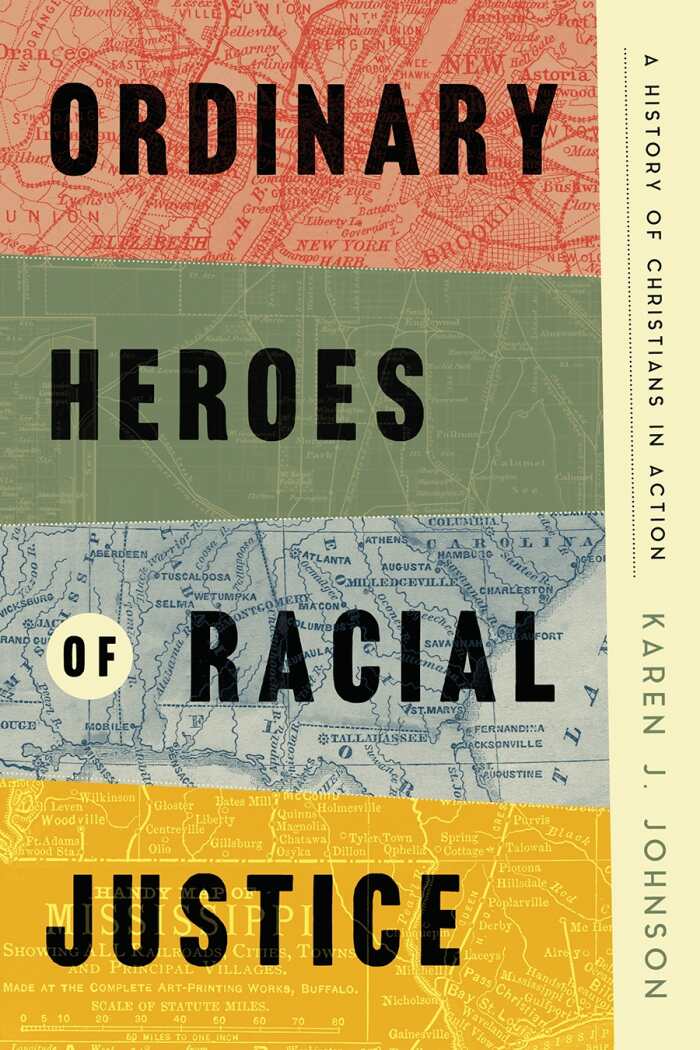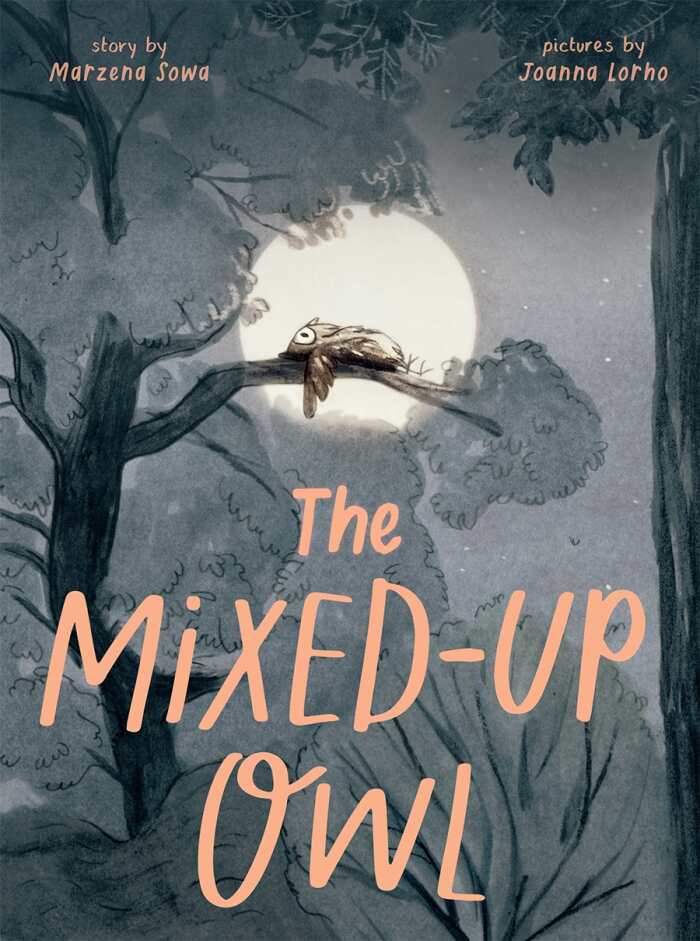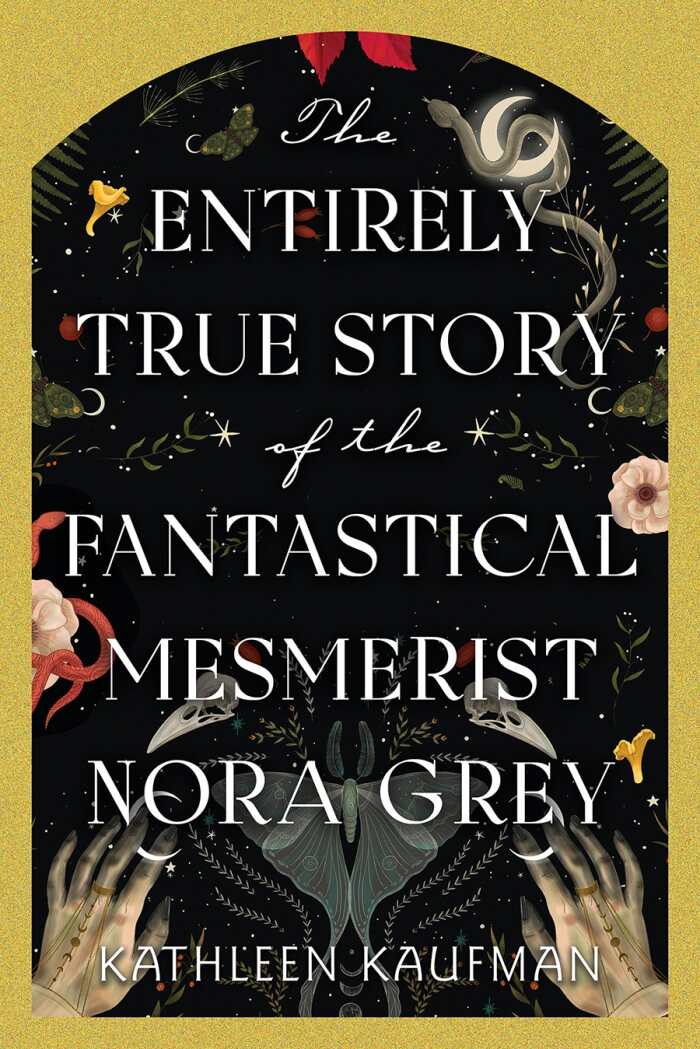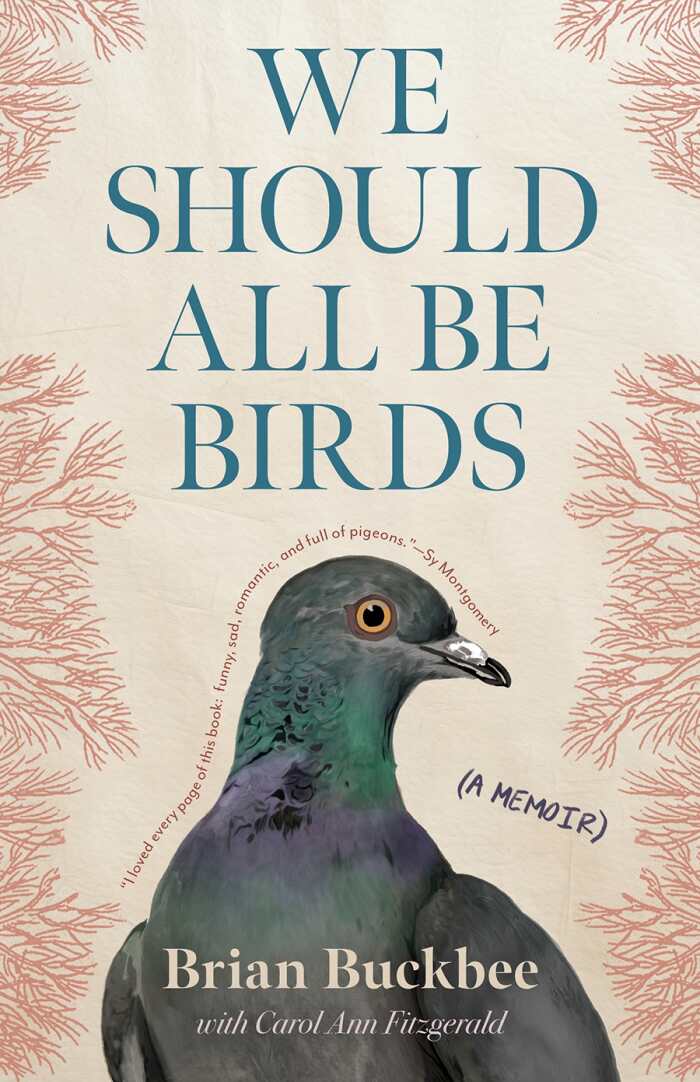Book of the Day Roundup: July 28 - August 1, 2025
Ordinary Heroes of Racial Justice
A History of Christians in Action

Karen J. Johnson
IVP Academic
Hardcover $30.99 (352pp)
978-1-5140-0998-7
Buy: Local Bookstore (Bookshop)
Karen J. Johnson’s eye-opening history book is about the complicity of American churches in systemic inequality.
Tracing the long history of religious support for segregation, the book asserts that white Christians have used biased interpretations of Bible passages, generational social norms and customs, religious teachings, and secular laws prohibiting the mixing of races to support slavery, segregation, and diminished social status for Black people. The book humanizes the issues through poignant stories of ordinary Christians who believed that living out the gospel meant embodying Jesus’s teachings in everyday life and who felt compelled to make a difference. Their contributions included fostering understanding and reconciliation within church communities, taking social action through community and economic development, practicing interracial fellowship, ministering to the needs of impoverished Black children for nourishment and safe places to learn and play, building intentional communities to share resources, and working to address systemic racial injustice.
Especially moving are the stories of white Christians who, recognizing that change would not come without proximity, left white enclaves to live in Black neighborhoods where real estate “red-lining” practices had enforced segregation. The book’s graphic descriptions of costly, substandard, dilapidated housing and the lack of public services essential to clean, safe communities are disturbing. Along with these issues, Christians faced the daunting task of building trust on both sides of the racial divide.
Arguing that the roots of racial injustice are deep, systemic, and lingering, the book suggests that change will require addressing systemic issues. It recommends steps like learning to celebrate differences rather than demanding assimilation, and developing empathy, deep listening skills, and resilience. It encourages fostering understanding through proximity and openness to God’s guidance.
Ordinary Heroes of Racial Justice is a meticulous history of the roots of racial inequality that highlights little-known Christians who worked for change.
KRISTINE MORRIS (June 22, 2025)
The Mixed-Up Owl

Marzena Sowa
Joanna Lorho, illustrator
Hippo Park
Hardcover $18.99 (80pp)
978-1-66264-093-3
Buy: Local Bookstore (Bookshop)
A confused owl looks for answers in all the wrong places in this charming picture book about fitting in. Owl feels all mixed up; he doesn’t understand why he’s the only one who can’t sleep at night. He seeks answers among the daytime creatures of the forest but only manages to annoy them—especially a hedgehog who is trying to sleep. That night, Owl seeks out his prickly new acquaintance and learns that he’s not so mixed up after all.
DANIELLE BALLANTYNE (June 22, 2025)
The Entirely True Story of the Fantastical Mesmerist Nora Grey

Kathleen Kaufman
Kensington
Hardcover $28.00 (448pp)
978-1-4967-5390-8
Buy: Local Bookstore (Bookshop)
Generational pains are soothed by supernatural revelations in Kathleen Kaufman’s captivating historical novel The Entirely True Story of the Fantastical Mesmerist Nora Grey.
Following the death of Nairna’s grandmother, her absent father, Tavish, plucks her from her comfortable rural life and takes her with him on the spiritualist circuit. Together, they perform divinations and seances across the Scottish countryside. But while Tavish’s occultism is an act, Nairna has natural talents—and misgivings about their deceptions. When a wealthy spiritualist recognizes her gifts, Nairna has the opportunity to lift herself and her father out of poverty, but at the cost of anonymity and their safety.
With each reading, Nairna’s abilities grow and buried family truths are unearthed. Nairna learns that her guide is her grandmother, Lottie—long maligned in local lore, but now revealed to have fallen victim to others’ machinations. Lottie speaks to Nairna across time, unraveling a tale of lost love, Victorian-era cruelties, and wrongful institutionalization. And even as she draws connections between those who pushed Lottie to the brink and those who would manipulate her talents in the present, Nairna begins to see how the resentments between her and her father might be healed.
The story is swift and exciting, moving between the women’s time periods with electric fervor. Social norms and breaks with convention are addressed in both eras, and the women’s defiant spirits bind them across time. That (beyond a profusion of farces and manipulators) supernatural gifts are real herein leads to enthralling turns. Snippets of newspaper clippings and indignant letters-to-the-editor fill in the scandalized society’s background, but the novel’s primary focus remains on its indomitable women.
A father-daughter rift is healed with a bit of mystical assistance in the feminist historical novel The Entirely True Story of the Fantastical Mesmerist Nora Gray.
MICHELLE ANNE SCHINGLER (June 22, 2025)
The Lake’s Water Is Never Sweet

Giulia Caminito
Hope Campbell Gustafson
Spiegel & Grau
Hardcover $28.00 (320pp)
978-1-954118-66-9
Buy: Local Bookstore (Bookshop)
In Giulia Caminito’s mesmerizing novel The Lake’s Water is Never Sweet, an Italian girl navigates private treacheries and injustices.
Gaia grows up in poverty, learning to be tough in a house whose concrete courtyard is her only respite. Her father uses a wheelchair, and her mother, Antonia, is tenacious. When her mother lobbies to secure their family public housing in a better part of Rome, Gaia is resentful. Later, with her father and brothers, she moves to a lakeside town that’s treated with elegiac tenderness. There, as a teenager, she faces bullying. After one of her friends commits suicide, her simmering emotions tilt toward rebellion.
Antonia often steals the spotlight. Despite Gaia’s prickliness, she expresses veiled admiration for her mother’s refusal to stop fighting for her loved ones. Vibrant sketches of Antonia’s sacrifices mix with mother-daughter clashes and glimpses of Antonia’s own rough upbringing. Indeed, Antonia is both a balm and a linchpin in Gaia’s fractured household.
Marked by lucid treatments of vulnerable girls’ friendships, loves, and the pendulum swings among them, this coming-of-age novel fills in the gaps between people’s expectations and teenage desires for independence. One of Gaia’s classmates, for instance, feigns pride about her sexual exploits and engages in dangerous online exchanges. Gaia herself earns good grades to appease her mother, but she still keeps plenty of secrets about her activities. She chooses her rivals and companions based on convenience or the protection they offer. She is angry when she is excluded, engages in self-condemnation, and has complicated reckonings with her own story. In time, Gaia matures because of her losses, learning to embrace her once-stifling surroundings.
A work of aching realism, this volatile coming-of-age novel is about the precariousness of growing up.
KAREN RIGBY (June 22, 2025)
We Should All Be Birds
A Memoir

Brian Buckbee
Carol Ann Fitzgerald, contributor
Tin House Books
Hardcover $28.99 (244pp)
978-1-963108-29-3
Buy: Local Bookstore (Bookshop)
Brian Buckbee’s reflective memoir We Should All Be Birds is about how his friendship with a rescued pigeon alleviated his ongoing health struggles.
In 2020, Buckbee was walking near home when he noticed a pigeon on a roof. The bird appeared injured—and curious about the man watching him. After seeing the same bird three nights in a row, Buckbee decided to bring it home to recover. Years on, Buckbee cares not just for Two-Step the pigeon, but also Two-Step’s “girlfriend” V. and another dozen birds. They bring him joy, easing the chronic migraines that ended his teaching career.
Because of his intense headaches, Buckbee dictated the book to his computer and sent it to his editor. That composition process is a key element of the book, whose fluid chronology and shifts of topic imitate the workings of the mind. The editor chides Buckbee when she feels he is idealizing relationships; Buckbee exclaims “Dictation snafu!” when the software also records his asides to the pigeons.
The main narrative spans a year, from one National Bird Day in 2022 to the next in January 2023, while flashbacks widen its scope. Buckbee recalls his childhood love of animals, his travels in Asia, the onset of a mystery illness, and the anguish of his partner leaving him. Medical crises with Two-Step, including a salmonella infection and being struck by a car, echo other bad news, including Buckbee’s father’s death from cancer and his mother’s diagnosis of early dementia. Parallels emerge between caring for a bird and a person: Two-Step’s “soft release” to a nesting box outside the living room window mirrors moving Buckbee’s mother into assisted living.
In the musing memoir We Should All Be Birds, communion with nature is a means of coping with chronic illness and losses.
REBECCA FOSTER (June 22, 2025)
Kathy Young
